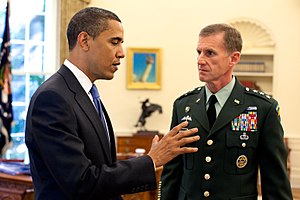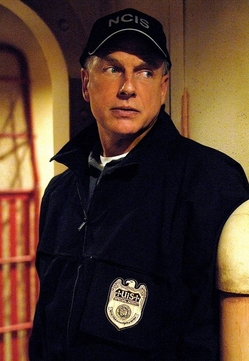 Image via Wikipedia
Image via WikipediaHeraldNet reported June 25 that a federal agent was arrested for assault in the Snohomish County of Washington State. Excerpt:
The man was arrested June 17 for investigation of second-degree assault. Deputies seized 15 guns from the home, including his duty weapon, according to a police affidavit filed in Everett District Court.Read the whole thing here.
He told investigators that he is an agent with the U.S. Department of State in Seattle. His wife told authorities that he is a diplomatic security officer.
Sheriff’s deputies were summoned to the couple’s house after the woman reported that she’d been assaulted during an argument.
Two children were home at the time of the incident, according to the report.
The woman told police that she and her husband were arguing when she slapped him across the face. She said he picked her up and threw her on the ground and then slammed her head against the floor several times before letting her go.
She said he discouraged her from calling 911, saying that if she summoned police, he would be fired from his job.
The woman complained of blurred vision and head pain. She was taken to Valley General Hospital and later transported to Providence Regional Medical Center in Everett where she was treated for a head injury and bruising to her face.
[...]
A court commissioner on Monday ordered him to stay away from his wife and children. The woman told the commissioner that since her husband returned from deployment to Afghanistan, he has been quick to anger.
She told police she believes he may be suffering from post traumatic stress disorder.
The report did say that "No charges have been filed against the 42-year-old man. The case is under review by the Snohomish County Prosecutor’s Office." Email: prosecuting.attorney@co.snohomish.wa.us.
It looks like under Washington State laws, assault in the second degree is considered a class B felony, which means a maximum penalty of 10 years in prison and $20,000 fine.
Also, folks in the State of Washington can get in trouble for interference with the reporting of domestic violence (RCW 9A.36.150). The wife was reportedly "discouraged" from calling 911. Not the same as "preventing" or "attempting to prevent" as enumerated below, but might still play out badly in court if this case gets there:
(b) Prevents or attempts to prevent the victim of or a witness to that domestic violence crime from calling a 911 emergency communication system, obtaining medical assistance, or making a report to any law enforcement official.
Beyond the possible immediate problems with the local court, the unnamed agent in this report could also be in trouble with his employer under the following regulations.
FAM 4370 which catalogs the List of Offenses Subject to Disciplinary Action in the Foreign Service is careful to point out the guidelines set in 3 FAM 4130:
3 FAM 4130 sets forth guidelines for deciding an applicant's suitability for the Foreign Service and for taking disciplinary action against a Foreign Service employee. As explained in 3 FAM 4130, the attainment of foreign policy objectives requires the maintenance of the highest standards of conduct by employees of the Foreign Service. Because of the uniqueness of the Foreign Service, employees are considered to be on duty 24 hours a day and must observe especially high standards of conduct during and after working hours and when on leave or travel status. Accordingly the commission after work hours of many of the offenses listed here under "Conduct on the Job" would still be punishable if affecting the ability of the individual or the agency to carry out its responsibilities or mission. No action against a Foreign Service employee should be considered without a careful review of 3 FAM 4130.
So we went and looked up 3 FAM 4130 - the Standards for Appointment and Continued Employment. You may read it in full here. It does not include "domestic violence" but specifically mentions "spousal abuse" as an example of "Notoriously Disgraceful Conduct."
3 FAM 4139.14 Notoriously Disgraceful Conduct
(TL:PER-303; 11-08-1995)
(Uniform State/USAID/USIA)
(Applies to Foreign Service Employees)
Notoriously disgraceful conduct is that conduct which, were it to become
widely known, would embarrass, discredit, or subject to opprobrium the
perpetrator, the Foreign Service, and the United States. Examples of such
conduct include but are not limited to the frequenting of prostitutes,
engaging in public or promiscuous sexual relations, spousal abuse, neglect
or abuse of children, manufacturing or distributing pornography, entering
into debts the employee could not pay, or making use of one’s position or
immunity to profit or to provide favor to another (see also 5 CFR, Part 2635)
or to create the impression of gaining or giving improper favor.
Disqualification of a candidate or discipline of an employee, including
separation for cause, is warranted when the potential for opprobrium or
contempt should the conduct become public knowledge could be reasonably
expected to affect adversely the person’s ability to perform his or her own
job or the agency’s ability to carry out its responsibilities. Evaluators must
be carefully to avoid letting personal disapproval of such conduct influence
their decisions.
The unnamed DS wife told the court that her husband had been to Afghanistan and also told police she believes he may be suffering from PTSD.
In a related note, the June 2010 issue of State Magazine, Ed Warner has an article entitled Unaccompanied Support | Department provides tangible, intangible benefits and I quote in part:
"The buzzword associated with some tours at unaccompanied posts is post-traumatic stress disorder, but Yun [MED Director Dr. Thomas Yun] said its incidence is low. That’s because PTSD is associated with being in life-threatening danger or witnessing someone in such danger, explained David Panakkal, acting director of MED’s Deployment Stress Management Program. Panakkal said health units at AIP posts [Afghanistan, Iraq, Pakistan] monitor for stress-related ailments on arrival, during and at the conclusion of the employee’s tour. While an employee can be medically evacuated if the emotional problem is big enough, he said problems can arise long after the employee returns home."
This is not totally off topic, but isn't it surprising to hear the MED Director quoted about PTSD's "incidence" as "low" without citing any statistics? The State Department does not do post-deployment screenings as recommended by the GAO, so who is monitoring the employees after they return home? I am actually curious how anyone could tell the "incident is low" is they are not tracking/evaluating employees after service in unaccompanied posts and the warzones?
[W]hile DOD requires medical screening of civilians before and following deployment, State requires screenings only before deployment. Prior GAO work found that documenting the medical condition of deployed personnel before and following deployment was critical to identifying conditions that may have resulted from deployment. GAO recommended, among other things, that State establish post-deployment screening requirements and that DOD establish procedures to ensure its post-deployment screening requirements are completed. While DOD and State agreed, DOD has developed guidance establishing procedures for post-deployment screenings; but, as of April 2010, State had not provided documentation that it established such requirements.
Finally, it is perhaps telling that the unnamed wife called 911 despite being warned that the husband/agent "would be fired from his job."
KiroTV also has this news item posted in its website with additional details including allegations of prior shoving and kicking as well as a restraining order now taken against the agent which requires him to be at least 100 yards away from his wife.
Updated: 7/1/2010:
An astute Diplopundit reader just sent a quick addition, which I was not even aware of. Under what's called the Lautenberg Amendment (officially called the Domestic Violence Offender Gun Ban ("Gun Ban for Individuals Convicted of a Misdemeanor Crime of Domestic Violence", Pub.L. 104-208,[1] 18 U.S.C. § 922(g)(9)[2]), an amendment to the Omnibus Consolidated Appropriations Act of 1997 enacted by the 104th United States Congress in 1996), this agent could be in deep kimchi with his guns alone:
"The act bans shipment, transport, ownership and use of guns or ammunition by individuals convicted of misdemeanor domestic violence, or who are under a restraining (protection) order for domestic abuse."
The agent in the news has not been charged or convicted of domestic violence, but since kirotv reports that there is a current restraining order against him, does that mean he can no longer use/carry/own even his officially issued weapon (or own any of the 15 guns seized from his home)?
Wonder if Diplomatic Security is investigating?












